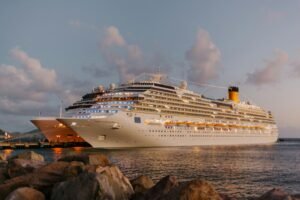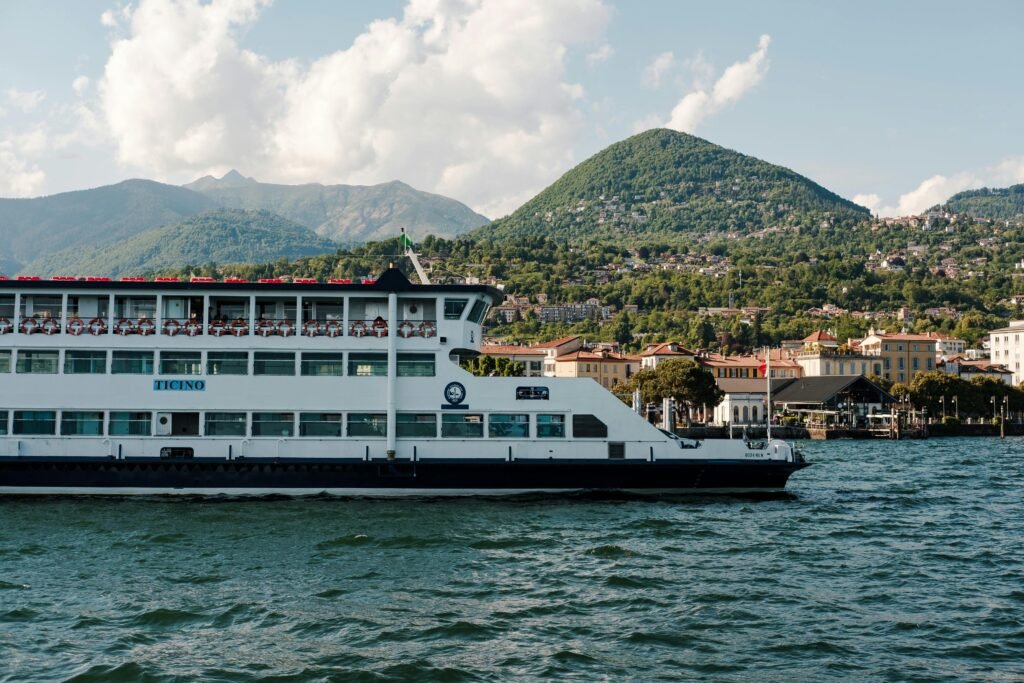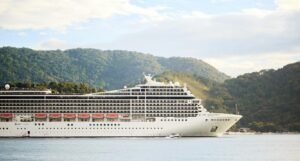Paramedic Positions on Cruise Ships
The journey industry proceeds to develop in 2026, with more ships cruising and modern goals being included around the world. Nearby this development, the request for healthcare experts at ocean has risen. Among these parts, paramedics play one of the foremost imperative parts in guaranteeing traveler and team security. A voyage dispatch works like a coasting city, and therapeutic crises can emerge at any time. Paramedic positions on journey ships give an opportunity for gifted experts to work in a special environment whereas conveying basic care. This point by point work diagram for 2026 clarifies what the part includes, the necessities, obligations, way of life, and career prospects for paramedics at ocean.
Why Cruise Lines Hire Paramedics
Journey ships have thousands of travelers and group individuals on voyages that can final weeks or months. Restorative care must be accessible at all times, and paramedics bridge the hole between crisis reaction and progressing clinical bolster. They give pre-hospital care, help specialists and medical caretakers, and guarantee that crises such as cardiac occasions, wounds, or serious sicknesses are taken care of proficiently. The part has developed in significance as voyage lines point to meet universal oceanic wellbeing controls and console travelers of security.
Core Duties of a Cruise Ship Paramedic
Working as a paramedic on a voyage dispatch is diverse from land-based crisis restorative administrations. Inland, paramedics react to calls and exchange patients to healing centers rapidly. At ocean, alternatives are restricted, and the paramedic must stabilize and oversee the understanding until higher-level therapeutic care can be come to, frequently days away.
The most obligations incorporate reacting to onboard crises, helping with triage, supporting transport specialists amid methods, observing patients in restorative offices, and keeping up crisis hardware. Paramedics too teach group individuals on to begin with help and security drills. They handle therapeutic records, help with departure conventions, and in some cases work with harbour specialists amid quiet exchanges.
Required Qualifications in 2026
By 2026, the capabilities for paramedic positions on voyage ships adjust closely with universal crisis therapeutic measures. Voyage lines require candidates to hold current paramedic licensure or enlistment in their domestic nation, in conjunction with a few a long time of clinical encounter. Most companies lean toward candidates with at slightest three to five a long time of crisis reaction work. Progressed Cardiac Life Back and Pediatric Progressed Life Back certifications are obligatory. Encounter with injury care, intense sicknesses, and revival is profoundly esteemed. Numerous journey administrators moreover look for candidates with extra preparing in basic care or aviation-style medication due to the farther nature of oceanic healthcare.
Skills in High Demand
Aptitudes for journey dispatch paramedics in 2026 go past specialized therapeutic information. Versatility is fundamental since paramedics regularly work with restricted assets and must extemporize arrangements. Solid communication abilities are required for planning with multinational groups of specialists, medical attendants, and team. Decision-making beneath weight is significant since pressing circumstances may require quick intercession without get toto progressed offices. Social affectability moreover plays a portion since travelers and group come from differing foundations. Innovation capability is progressively pertinent as journey lines utilize telemedicine and advanced wellbeing frameworks to put through ships with shore-based specialists.
Life Onboard as a Paramedic
Life onboard a voyage transport is both fulfilling and challenging. Paramedics live and work on the vessel for contracts that ordinarily final between three and six months. Convenience is given, along side suppers and get to to group facilities. Shifts can be unusual since crises happen at any time. Paramedics must stay on call, prepared to reply day or night. The work can be seriously, but the involvement offers travel openings to different goals around the world. Team individuals frequently frame near communities, and paramedics are regarded for their imperative part. The way of life requires versatility, flexibility, and consolation with being absent from domestic for long periods.
Working Environment and Facilities
Voyage ships are prepared with therapeutic centers that take after little clinics. These offices incorporate meeting rooms, treatment ranges, and restricted inpatient beds. Paramedics help in running the day-to-day operations of these centers. They handle persistent admissions, take crucial signs, regulate solutions beneath supervision, and give crisis care when required. Gear such as defibrillators, ventilators, and research facility testing machines are accessible, but progressed surgical offices are not. In cases where care surpasses onboard capabilities, paramedics play a key part in orchestrating restorative clearing by helicopter or exchange to the nearest harbour.
Salary Expectations in 2026
Paramedic compensations on voyage ships change depending on the journey line, the estimate of the dispatch, and the level of encounter. In 2026, compensations ordinarily run between £30,000 and £45,000 yearly for UK candidates, and between $40,000 and $60,000 yearly for US candidates. These figures regularly avoid benefits such as free settlement, dinners, travel costs, and protections. A few voyage lines too offer execution rewards or contract completion motivating forces. Whereas the pay may be lower than certain land-based crisis therapeutic parts, the taken a toll savings and travel openings adjust the condition for numerous experts.

Career Growth and Development
A voyage dispatch paramedic part can lead to a few career ways. Numerous paramedics advance into senior therapeutic officer parts or move into shoreside crisis administration for voyage companies. Others utilize the involvement to construct universal qualifications, which can fortify applications for progressed healthcare parts in clinics, flying medication, or seaward businesses. The position improves a professional’s flexibility and emergency administration abilities, qualities profoundly esteemed in healthcare. Proceeding instruction is energized, and numerous journey administrators back staff in upgrading certifications and going to preparing programs.
Benefits of Working at Sea
The benefits of working as a paramedic on voyage ships amplify past compensation. Travel is one of the foremost appealing advantages, with experts going to ports over Europe, the Caribbean, Asia, and past. The multicultural environment offers presentation to assorted restorative cases and worldwide collaboration. Living costs are negligible since lodging and nourishment are given. The part too builds strength and flexibility, qualities that improve both individual and proficient life. Numerous paramedics discover the work meaningful because they are trusted with shielding thousands of individuals in interesting situations.
Challenges of the Role
The position comes with challenges that candidates must plan for. Working long hours and being on call around the clock can be requesting. Separation from family and companions amid long contracts may influence individual life. Constrained assets at ocean require imagination and certainty in clinical choices. Dealing with serious crises without prompt clinic get to can be unpleasant. Social contrasts inside the team may moreover posture communication challenges. These components cruel the part isn’t suited for everybody, but for those who grasp experience and duty, it can be profoundly fulfilling.
Recruitment Outlook for 2026
The enlistment viewpoint for journey dispatch paramedics in 2026 is solid. Journey lines proceed to extend armadas, and security measures are getting to be stricter. Companies from the UK, USA, and Europe effectively enroll certified paramedics to meet request. Competition can be tall, and candidates with assorted encounter stand out. Bosses explore for candidates with demonstrated crisis reaction abilities, flexibility, and the capacity to work autonomously. With the industry anticipated to keep growing, openings for healthcare experts at ocean are anticipated to extend.
Application Process
Applying for paramedic positions on voyage ships more often than not includes submitting a nitty gritty CV highlighting clinical encounter and certifications. Employers frequently ask references and confirmation of proficient enlistment. Effective candidates experience interviews that will incorporate scenario-based questions to test decision-making and versatility. A pre-employment restorative examination is required to guarantee candidates are fit for shipboard obligations. Foundation checks and sedate screening are too standard. Once enlisted, paramedics go to introduction preparing, which covers sea security, transport conventions, and crisis departure strategies.
Training and Preparation
Arrangement for journey transport work incorporates more than therapeutic aptitudes. Paramedics must total security preparing courses commanded by worldwide sea law. These incorporate firefighting, survival at ocean, and security mindfulness. A few voyage lines give in-house preparing on electronic restorative record frameworks, understanding privacy, and ship-specific hardware. Nature with irresistible illness conventions is basic, particularly after worldwide wellbeing challenges in later a long time. Paramedics are too anticipated to hone preventative medication, prompting travelers on nausea, drying out, and travel-related sicknesses.
Differences Between Land and Sea Roles
Paramedic parts at ocean contrast essentially from conventional emergency vehicle work. On arrive, paramedics stabilize patients and exchange them to healing centers rapidly. On ships, they must give amplified care over hours or days. Assets are constrained, and decision-making is regularly collaborative with specialists and medical caretakers on board. The center is on both crisis and schedule care since journey transport therapeutic centers moreover treat common ailments like flu, gastroenteritis, and minor wounds. This assortment of cases broadens a paramedic’s encounter compared to the smaller center of land-based crisis administrations.
Telemedicine and Technology
By 2026, telemedicine has ended up a standard device for voyage dispatch therapeutic groups. Paramedics utilize computerized stages to associate with pros inland for meetings, moment suppositions, and complex decision-making. Wearable gadgets and observing frameworks moreover permit paramedics to track persistent conditions more viably. Electronic therapeutic records are coordinates with journey line databases, making data open over voyages. Innovation diminishes segregation and fortifies the standard of care, but it too requires paramedics to remain upgraded with computerized frameworks.
Work-Life Balance Considerations
Adjusting work and individual life at ocean is an progressing challenge. Paramedics frequently work long shifts and may confront unpleasant conditions. In any case, journey lines regularly provide time off between contracts, permitting expanded periods at domestic. A few experts discover this revolution more adjusted than conventional crisis administrations plans. Onboard, paramedics have get to to recreational offices, exercise centers, and team exercises that give unwinding amid downtime. The adjust depends on individual versatility and the capacity to adjust to shipboard life.

Cruise Lines Hiring Paramedics
A few major journey lines frequently contract paramedics, counting those based within the UK and USA. Worldwide administrators such as Regal Caribbean, Carnival, Norwegian, and MSC Travels promote healthcare parts all through the year. Extravagance lines and undertaking voyage companies too require paramedics due to littler restorative groups. Enrollment organizations specializing in oceanic healthcare help in setting candidates. Work openings show up on official journey line websites, sea work sheets, and healthcare enrollment stages.
Legal and Ethical Considerations
Working as a paramedic at ocean includes particular lawful and moral contemplations. Paramedics must take after sea law, the directions of the voyage line’s hail state, and universal wellbeing rules. Educated assent, quiet secrecy, and proficient responsibility are basic. Paramedics may too confront moral predicaments when assets are constrained, requiring prioritization of care. Following to proficient codes of conduct and keeping up up-to-date information is basic for ensuring both patients and professionals.
Future Outlook Beyond 2026
Looking past 2026, paramedic parts on voyage ships are anticipated to develop in complexity and obligation. As ships gotten to be bigger and traveler numbers increment, request for healthcare staff will rise. Unused innovations will proceed to shape how care is conveyed, with telemedicine and AI-driven diagnostics playing bigger parts. Journey lines may grow preparing programs to construct long-term healthcare careers at ocean. For paramedics looking for a special and fulfilling career way, voyage dispatch positions will stay an attractive option well into long-term.
Final Thoughts
Paramedic positions on journey ships in 2026 offer a challenging however fulfilling career way for healthcare experts. The part combines crisis reaction abilities with versatility to one of a kind oceanic conditions. With solid request, competitive benefits, and the chance to travel, it is an engaging alternative for paramedics looking for enterprise and career development. Whereas challenges such as long hours and constrained assets exist, the involvement builds strength, universal presentation, and profitable abilities. For experts within the UK, USA, and past, voyage dispatch paramedic roles present one of the foremost particular openings in advanced healthcare.
FAQs
What qualifications do you need to be a paramedic on a cruise ship in 2026?
You would like to be a authorized paramedic with three to five a long time of clinical involvement, and certifications such as ACLS and Buddies. Involvement in crisis care and injury administration is profoundly favored.
How much do cruise ship paramedics earn?
In 2026, compensations run from £30,000 to £45,000 for UK professionals and $40,000 to $60,000 for US experts, furthermore benefits like lodging, suppers, and protections.
What are the main duties of a cruise ship paramedic?
Obligations incorporate crisis reaction, understanding observing, helping specialists, keeping up gear, and supporting restorative clearings when vital.
Do cruise ship paramedics travel a lot?
Yes, paramedics travel broadly since they live and work on ships cruising to goals around the world.
Is the job stressful?
It can be unpleasant due to long hours, crises at ocean, and constrained assets. Be that as it may, it is additionally fulfilling for those who appreciate duty and enterprise.
How do you apply for a paramedic job on a cruise ship?
You apply through journey line websites, healthcare enrollment offices, or oceanic work sheets. Applications incorporate submitting your CV, going to interviews, and completing restorative and security preparing.




